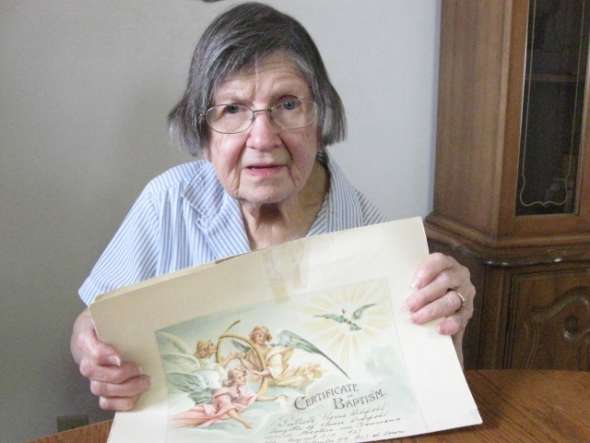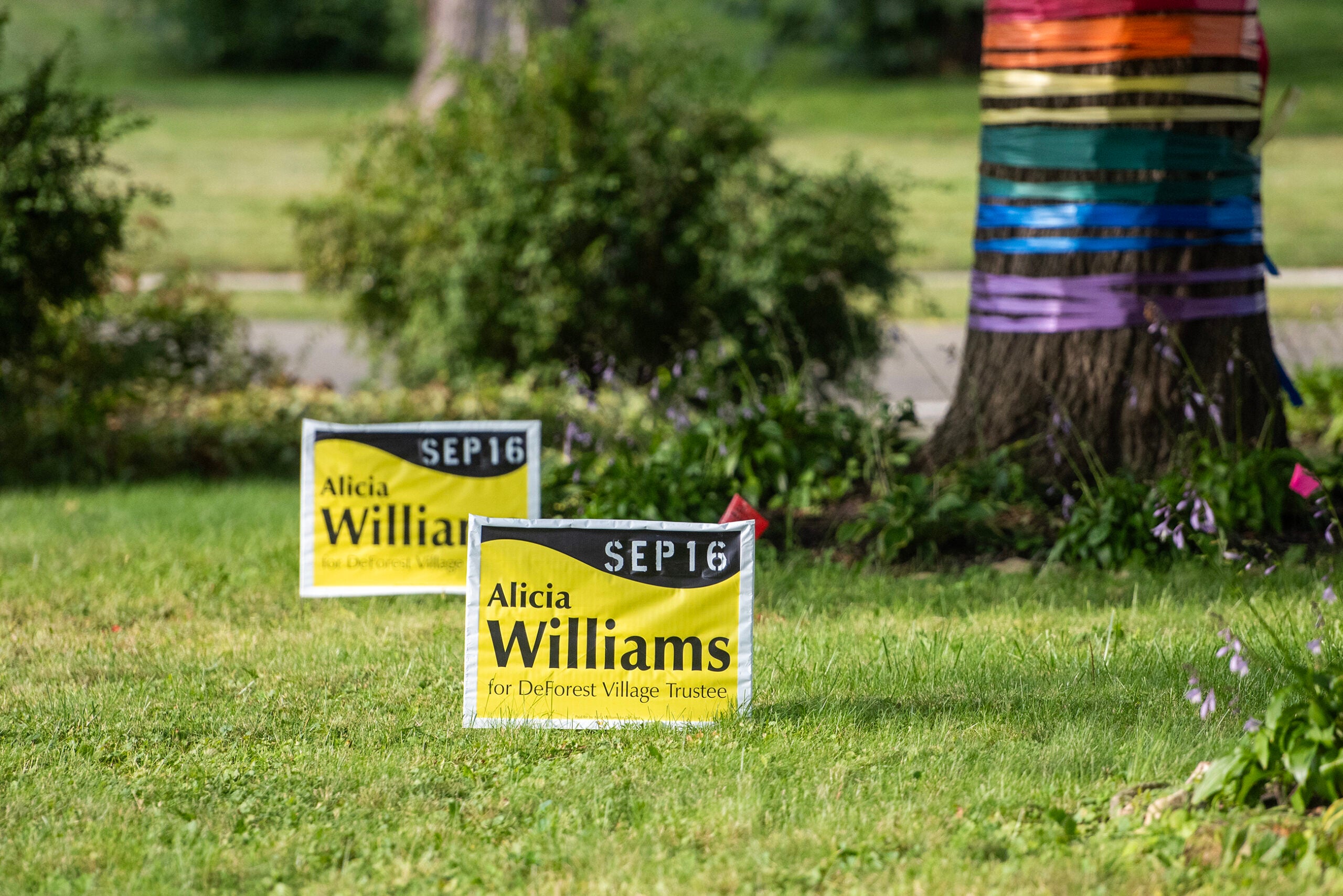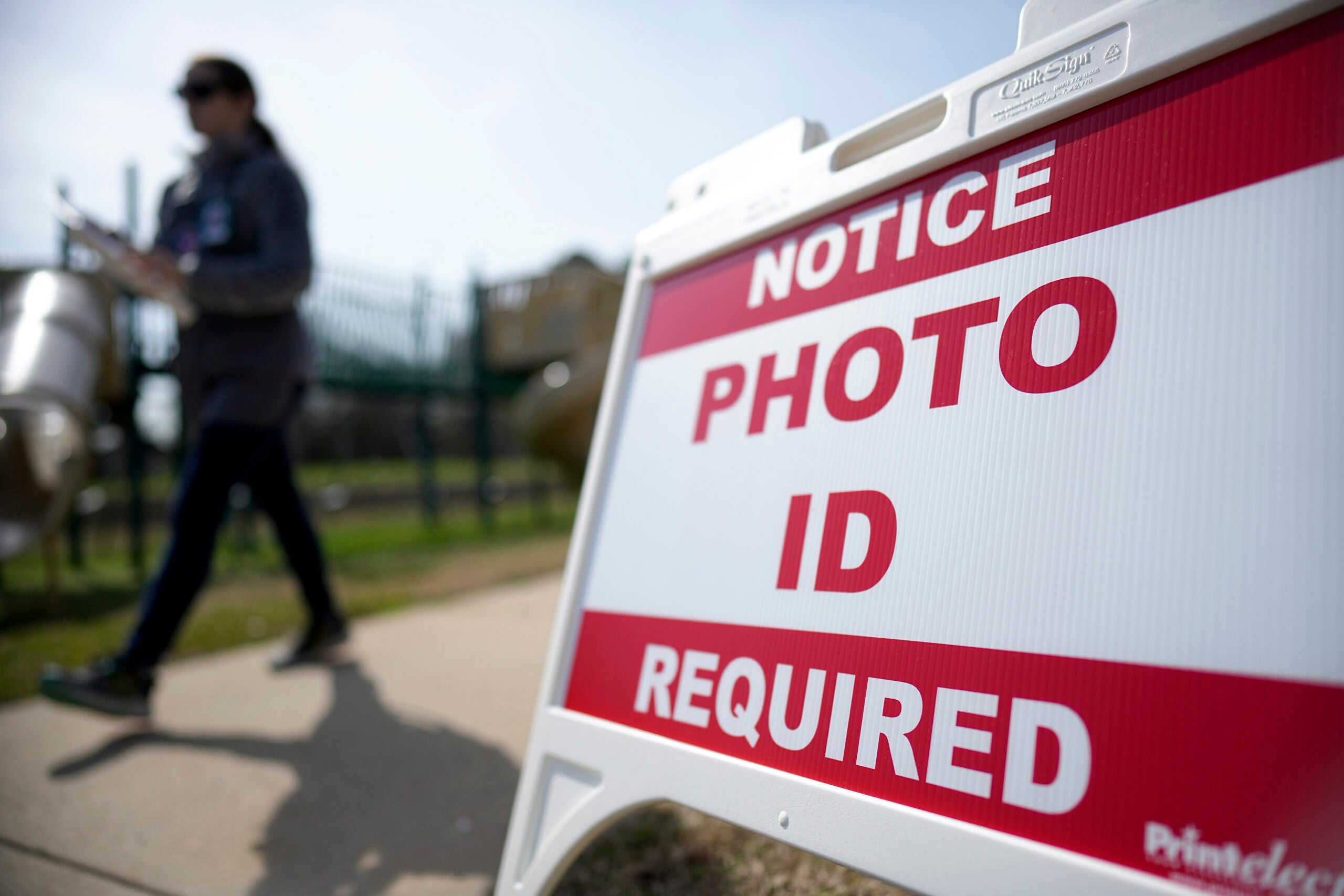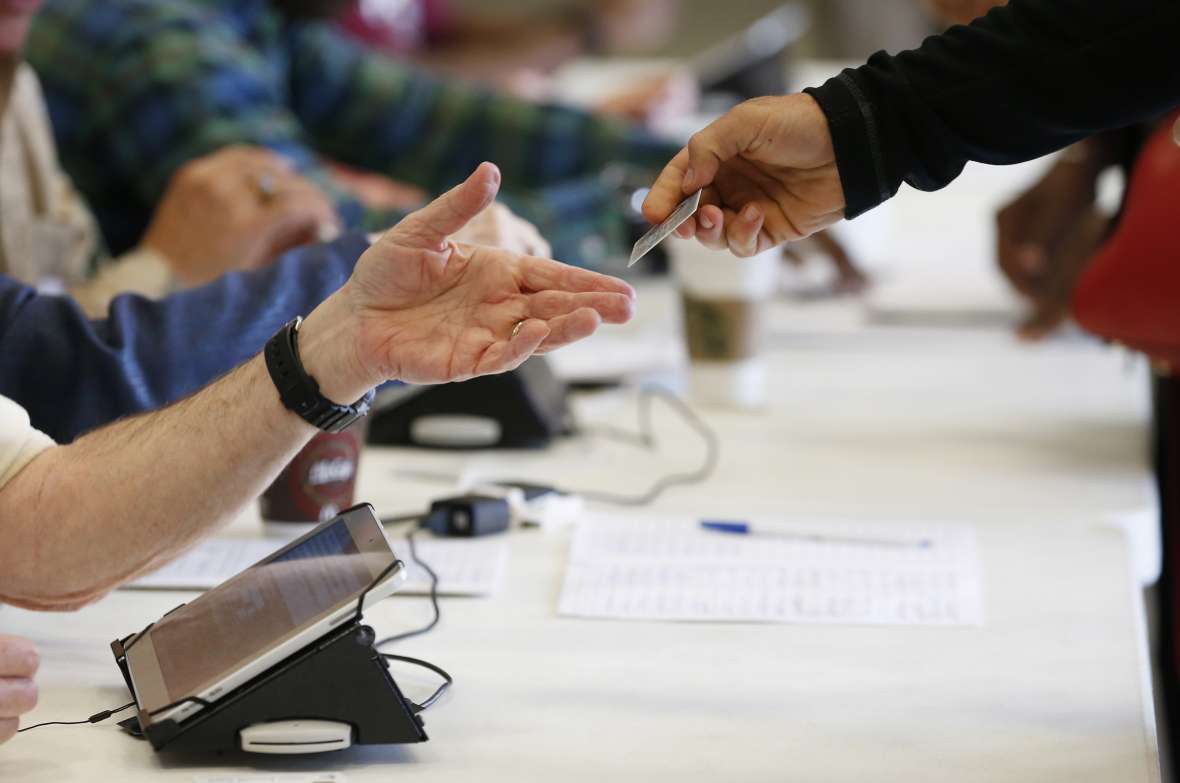The Wisconsin voter ID case Ruthelle Frank v. Scott Walker will continue without Frank.
The Village of Brokaw woman died June 4 at the age of 89, without seeing the resolution of the civil rights case that bears her name.
In 2011, Frank became the lead plaintiff in the case, which was filed by the ACLU.
News with a little more humanity
WPR’s “Wisconsin Today” newsletter keeps you connected to the state you love without feeling overwhelmed. No paywall. No agenda. No corporate filter.
Frank was a village alderwoman who couldn’t vote in her own election because she didn’t have an ID or the birth certificate she needed to obtain one.
“Well, that was just a slap in the face,” Frank said at the time. “They wouldn’t even look at my other papers. I had everything. I had my social security card. I had my marriage license. I had proof where I lived, and I had all the other requirements. The only thing I didn’t have was a birth certificate. I don’t feel that I should have to have a birth certificate to be able to vote.”
Her son, Randy Frank, said she refused to accept a state ID unless the law was changed for everyone.
“She passed away before she was able to obtain a state ID without getting any special consideration and that was important to her,” he said. “She was offered the ability to get an ID, but she did not want to do that and receive special treatment.”
Her daughter, Rochelle Frank, remembers her mother as a fighter.
“She believed in fighting for her rights, and working hard in everything that she did, no matter if it was for voting, or to save the Village,” Rochelle Frank said.
Ruthelle Frank was also involved in the struggle to keep Brokaw from dissolving because of millions of dollars of debt created when the Wausau Paper mill closed.
In 2014, a federal district court ruled Wisconsin’s voter ID law was unconstitutional. The Seventh Circuit Court of Appeals reversed the ruling later that year.
The Appellate Court still has to decide whether people who have difficulty obtaining identification can vote by affidavit.
Wisconsin Public Radio, © Copyright 2025, Board of Regents of the University of Wisconsin System and Wisconsin Educational Communications Board.







